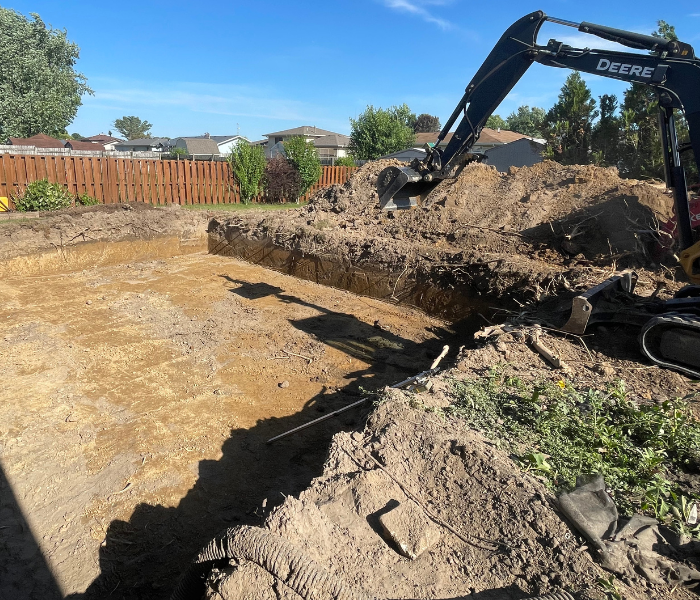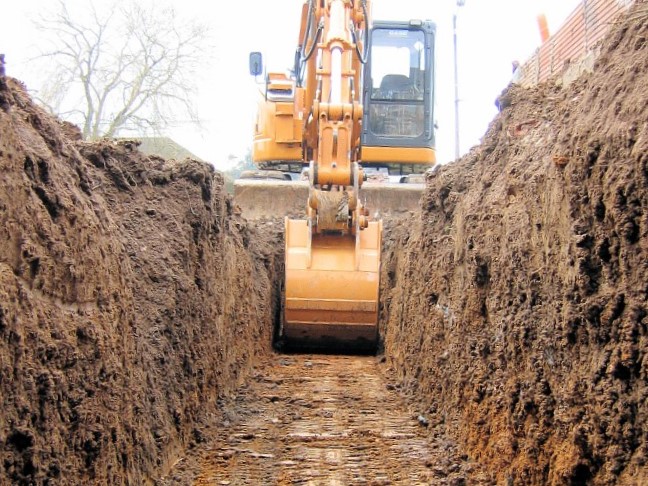Comprehensive Excavation Techniques: Grasping the Principles for Success
In the world of building and construction and civil engineering, the importance of efficient excavation approaches can not be overemphasized. The careful planning, specific execution, and thorough attention to detail needed in excavation projects require an extensive technique that encompasses different fundamental facets. From first dirt evaluation to the implementation of security procedures and regular progression surveillance, understanding these core elements is important for attaining success in any excavation undertaking. Nonetheless, real proficiency lies not merely in comprehending these principles yet in effortlessly incorporating them to browse the intricacies of excavation tasks with finesse.
Comprehending Excavation Project Preparation

The initial phase of any excavation project is the preparation stage, where crucial decisions are made that can substantially affect the end result of the project. Recognizing the job timeline, budget plan, and scope constraints is critical for producing a detailed excavation strategy that makes certain the project's success.
One secret element of excavation job planning is the development of an in-depth timeline that describes the series of activities, landmarks, and due dates. By carefully considering all these factors throughout the preparation stage, excavation tasks can be executed effectively and efficiently, leading to effective end results - dump truck companies in ohio.
Soil Evaluation and Website Examination
Carrying out complete soil analysis and website assessment is a crucial action in the prep work phase of any type of excavation job. Soil analysis includes identifying the structure, structure, and properties of the soil at the excavation site. This info is vital for understanding the soil's bearing ability, moisture content, and possibility for disintegration, which are essential variables in establishing the excavation approaches and equipment required for the job.
Site examination goes past dirt evaluation and encompasses a broader assessment of the general site problems. This evaluation includes determining any type of prospective hazards, such as underground energies, ecological issues, or unstable terrain, that might influence the excavation procedure. By extensively reviewing the site, task managers can develop effective excavation techniques that focus on safety and security, performance, and ecological security.
Utilizing sophisticated modern technologies like ground-penetrating radar, dirt tasting, and drone studies can improve the precision and efficiency of soil evaluation and site assessment. Spending time and resources in these preliminary steps can eventually save time and prevent expensive delays or problems during the excavation procedure.
Tools Choice and Usage
Reliable excavation jobs rely heavily on strategic equipment choice and application to make sure optimal efficiency and productivity. Selecting the best equipment for the task is vital in making best use of efficiency and minimizing downtime. Variables such as the sort of soil, deepness of excavation, and project range play a considerable function in establishing the most suitable tools for the job at hand.

Along with choosing the proper tools, appropriate utilization is crucial to job success. Operators needs to be educated to handle the equipment securely and effectively - septic ohio. Normal maintenance checks and prompt fixings aid stop failures and make certain regular performance throughout the project
Precaution and Rules Conformity
In the world of excavation projects, focusing on precaution and compliance with laws is extremely important click reference to making sure a safe and legitimately sound functional atmosphere. Precaution include a range of practices, including carrying out extensive site evaluations, executing proper signs and obstacles, and supplying sufficient safety and security training for all workers associated with the excavation procedure. Adherence to policies, such as OSHA needs in the USA, makes sure that the excavation project fulfills the needed standards to protect employees, bystanders, and the surrounding atmosphere.

Tracking Development and Adjusting Approaches
Just how can forecast supervisors properly track the advancement of excavation jobs and adjust their strategies as necessary to maximize results? Surveillance progress is vital for guaranteeing that excavation jobs remain on track and fulfill target dates.

Verdict
Finally, grasping the fundamentals of comprehensive excavation strategies is essential for the success of any task. By comprehending task preparation, evaluating dirt and website conditions, picking proper equipment, abiding with security laws, and keeping an eye on progression, click now task supervisors can guarantee a smooth and efficient excavation procedure. Executing these techniques will cause successful results and minimize possible dangers or problems throughout the excavation project.
The first phase of any excavation task is the preparation stage, where essential decisions are made that can considerably impact the result of the job. Recognizing the job spending plan, range, and timeline restrictions is essential for developing a comprehensive excavation plan that ensures the task's success.
Exactly how can project managers effectively track the advancement of excavation tasks and adjust their methods as necessary to maximize end results? By very closely keeping an eye on progression and being prepared to adapt techniques, task supervisors can enhance the overall success of excavation tasks.
By understanding project preparation, evaluating dirt and website problems, picking ideal devices, conforming with security laws, and monitoring progression, job managers can make certain a smooth and effective excavation process.